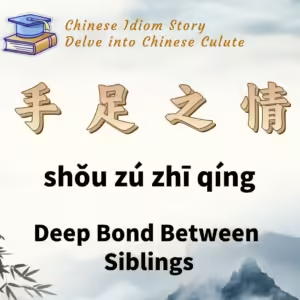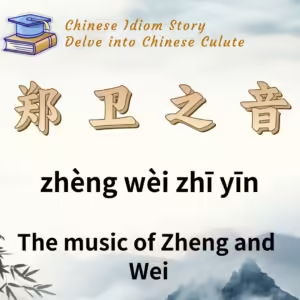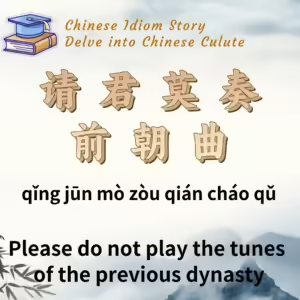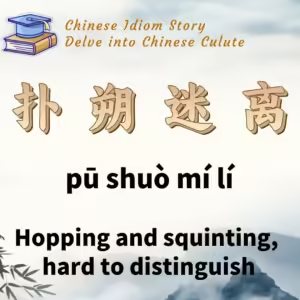
Chinese Idiom: 结不解缘 (Jie Bu Jie Yuan)
English Translation: A bond that cannot be untied
pīn yīn: jié bù jiě yuán
Idiom Meaning: This idiom describes a deep romantic connection between lovers that is inseparable; it can also refer to close relationships between people that are hard to break.
Historical Source: Poem “客从远方来” (A Guest Comes from Afar) in the “Nineteen Old Poems” (古诗十九首).
Idiom Story:
“古诗十九首” consists of a collection of five-character poems created by lower-class scholars during the late Eastern Han Dynasty, inspired by the Yuefu folk songs. These poems mainly express themes of unfulfilled ambitions, homesickness, and the sorrow of parting lovers. The authors of these poems remain unknown, leading to the collective designation of these works as “古诗.”
The poem “客从远方来” is the eighteenth in this collection and is a love poem expressing the sentiments of a wife awaiting her husband’s return. The poem contains ten lines, and the relevant excerpt includes:
客从远方来,遗我一端绮。
相去万余里,故人心尚尔。
文采双鸳鸯,裁为合欢被。
著以长相思,缘以结不解。
以胶投漆中,谁能别离此?
The meaning of these lines is that even though the speaker and her husband are separated by a great distance, their love remains unchanged. She uses beautiful fabric patterned with mandarin ducks (a symbol of love and fidelity) to create a quilt of harmony, symbolizing their unbreakable bond. The phrases “缘以结不解” and “胶投漆中” emphasize the strength and permanence of their connection.
Over time, the phrase “缘以结不解” was simplified and transformed into the idiom “结不解缘,” symbolizing an inseparable bond, particularly in romantic relationships.






